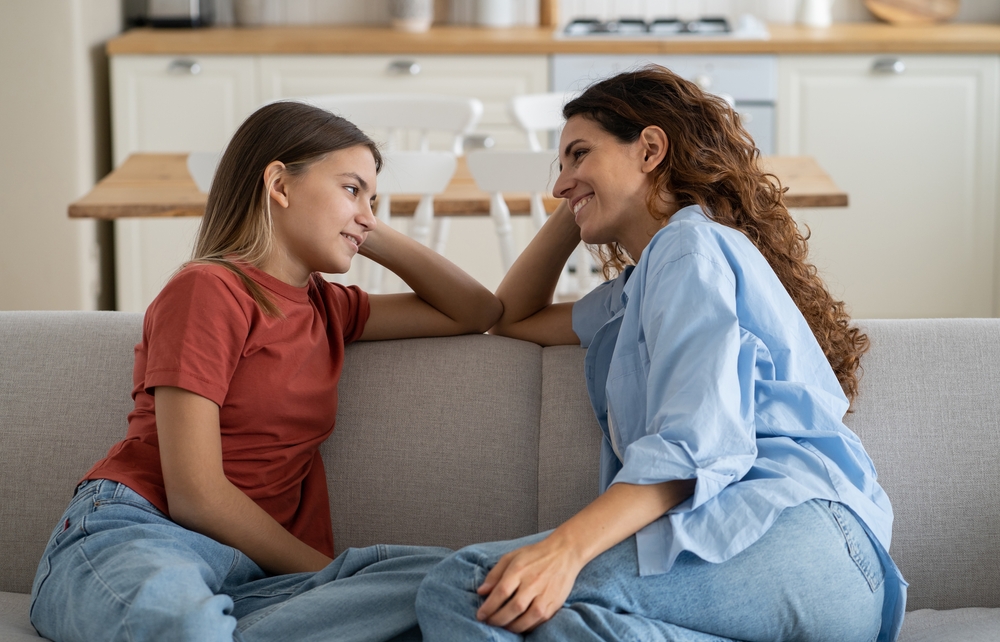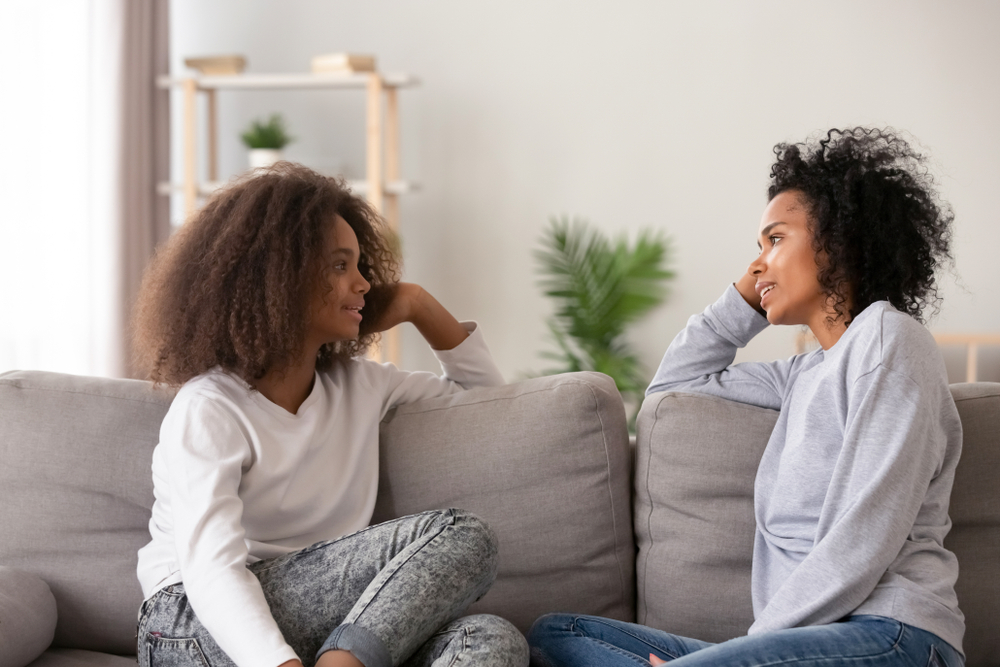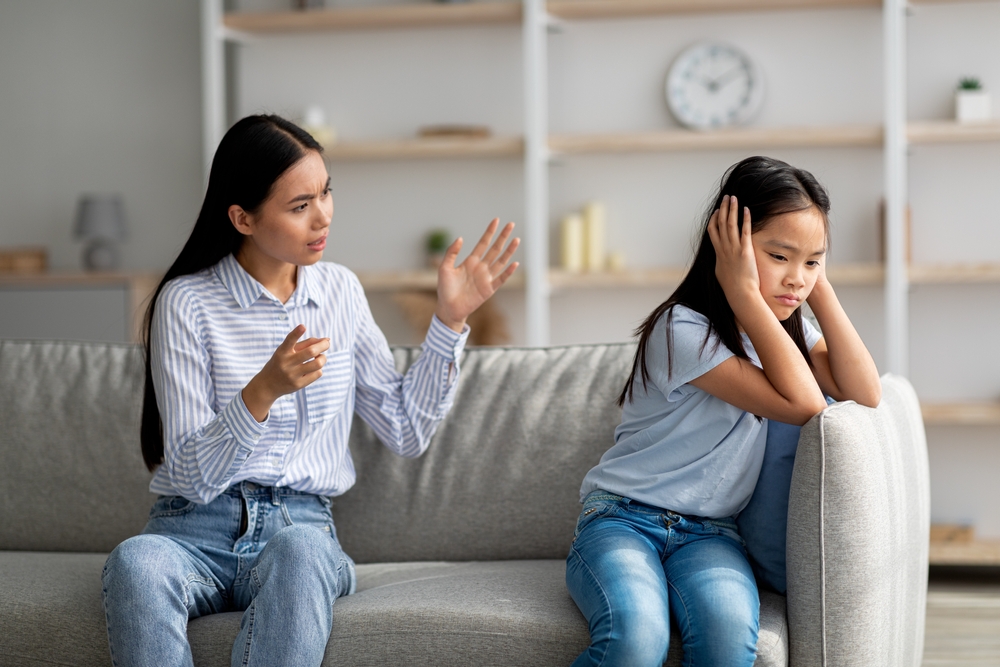Moms are known for always having the best advice and there’s a good reason for that. They often take care of their kids and guide them through many stages of growing up.
Because of this, mothers have a special understanding of their children and their emotions. They can usually sense when a child is joyful or sad, or even faking those feelings. So they are often the first to spot when their kid brings home a harmful friend or partner.

Is it maternal instinct?
The concept of maternal instinct is well-known but mostly untrue. It suggests that moms just know what their kids need without any effort. In truth, being a parent is a huge change in life and involves lots of trial and error while figuring things out.
For example, parents might learn to tell apart the different cries from their baby not because they have some magical ability but from spending hours watching over them.

Mother’s wisdom
Instincts are fixed and don’t change, but good parenting comes from effort and flexibility. So saying “mom knows best” isn’t automatic; it’s earned through hard work to bond with the child.
When a mom feels something isn’t right about her child’s friend or partner, it’s not just intuition; there are real reasons behind that feeling even if she can’t explain it clearly.
Think first
It’s crucial to tell apart gut feelings from regular stress. “Mother’s wisdom” can apply to both situations. Is the romantic partner really bad news or are you just worried about your child getting hurt for the first time?
One way to tell between intuition and fear is that gut feelings feel neutral while fear comes with strong emotions. Take some time in a calm place to think about why you might feel uneasy about your child’s new relationship—could it be more about you than them?
For instance, maybe you’re upset by how they look or what they’re into; perhaps you think your kid could “do better.”

Who is your child really?
If you have an uneasy feeling about your child’s friend or partner, take time to reflect on who your own kid really is. Parents often see their children through rose-colored glasses which can lead them to blame friends for bad behavior instead of looking at their own child’s actions too.
Remember like attracts like—people usually connect with others who share similar traits! The qualities you dislike in someone else may also be present in your own child.
How to talk about toxic friends
Don’t jump into conclusions; instead start asking questions calmly without judgmental tones! Kids especially teens can sense when parents are trying too hard during conversations so wait until you’re genuinely curious rather than disapproving!
Try asking:
- What do you enjoy most about this person?
- What do you like best in this friendship?
- What activities do you enjoy together?
- What interests does your friend have?
Also try getting familiar with this friend! You might find some nice surprises which will show respect towards what matters most—their happiness! Even if they don’t end up being liked by you look for positive traits so you’ll understand why they’re important!

Avoid outright opposition
If you’re against the friendship right away chances are high that they’ll stick together even more secretly! By being open-minded though you’ll get closer insight into what’s happening between them while also sharing any concerns respectfully!
Instead of saying someone has bad influence say something like “I’m worried since I heard your friend skipped school.” Start discussions without making threats as those shut down communication fast!
Lettin’ kids fail
Sadly kids must make mistakes sometimes before learning valuable lessons themselves—it doesn’t matter how much motherly wisdom exists nothing will shield them completely from pain either way though creating an environment where they feel safe seeking guidance helps immensely!
“It’s our duty keeping our children healthy & safe,” says Sarah Bren Ph.D., licensed psychologist at Upshur Bren Psychology Group located Pelham NY
“If we recognize negative feelings regarding friendships yet see joy within these connections then trusting our children’s abilities navigating challenges becomes essential.”

Lettin’ kids learn
Moreover avoid directly complaining over inappropriate behaviors since doing so likely triggers defensive reactions among youngsters instead ask how such actions affect emotional states—for instance if teased ask how criticism made ‘em feel thus helping grasp healthy boundaries within friendships overall
“Most importantly we want convey trust towards choices made regarding pals & relationships,” says Nicole Beurkens Ph.D., founder/director Horizons Developmental Resource Center Caledonia MI
“It doesn’t mean input isn’t allowed nor support during tough times should cease however inserting ourselves improperly remains off-limits!”

Encourage making fresh groups via engaging activities enjoyed previously reconnecting old buddies too help create opportunities offering transport space equipment etc
Dangerous individuals

However never doubt motherly instincts whenever danger arises emotionally physically calmly express worries setting boundaries distancing accordingly meanwhile listening empathetically toward children’s sentiments reassuring love wanting safety confidence care explaining unhealthy dynamics involved likely triggering anger/hurt allowing processing space needed afterwards
Give it time
Sometimes patience proves beneficial friendships romances fade quickly especially amongst youth confronting issues may not always require immediate action remember empathy comfort vital during heartbreaks—even if secretly relieved inside
